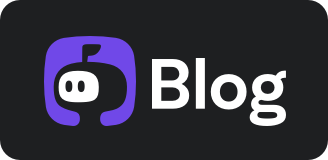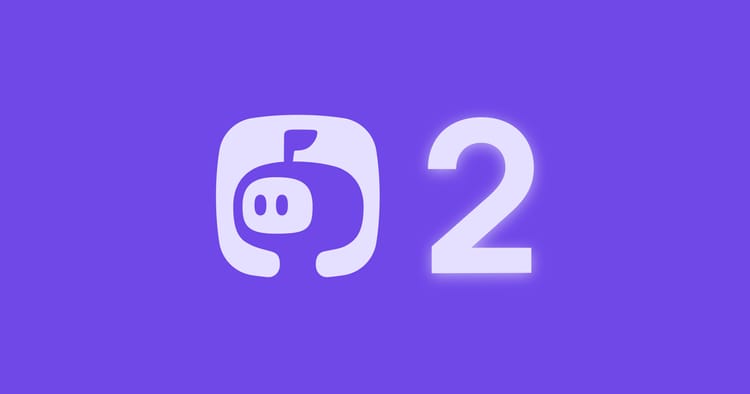Founders and experts share 10 interview questions to ask candidates

Interviewer: What are your skills?
Candidate: [thinks “that’s in my resume” but has to reply] My skills include content writing, editing, proofreading, and publishing.
Interviewer: Tell me about your work experience.
Candidate: [“Just look at my resume”] I’ve worked at X, Y, and Z.
Interviewer: What did you do in your previous roles?

Candidate: [“ugh—not again. For once, ask me something not mentioned in the resume”] I did A, B, and C.
This is how the majority of companies interview candidates. And when the employee later turns out to be mediocre, culture and team unfit, they complain, “why don’t I get exceptional talent?” That’s ridiculous. Because if you don’t ask good questions that uncover the candidate’s thinking process, communication skills, and job expertise, how do you expect to find great talent?
But, I empathize. Asking the right questions can get tricky. You have to balance between not over-emphasizing the candidates’ past, focusing on their present, and knowing their future aspirations to find a culture fit.

So, to help you — here are the questions by entrepreneurs who have together hired 1000s of exceptional talent.
1. Think about something you deeply love. Take a few minutes to prepare and then teach it to me in a few minutes.
“I’ve interviewed hundreds of people for numerous companies over the past 20 years of building businesses,” says Chamath Palihapitiya, former Facebook executive and the founder of Social Capital, a VC firm. “I’ve experimented with many interview questions, most are only semi-useful, but this has been the most useful.”
Here’s why:
a) Everyone is passionate about something. Something they can speak on for hours. When you ask about it, you’ll help them build confidence.
b) “Now everyone has a chance to be a teacher, and you see the clarity, enthusiasm, and lucidity of someone.
Are they a learner? Do they dig beyond the obvious? Will they unpack the thing they love from first principles?
c) “What does this question EXPLICITLY minimize yet maximize focus on:
1. School
2. Gender
3. Race
4. Upbringing
Labels fall away, and you see a person who cares about something to know it better than anyone else in the world (in their mind).”
The answer will tell you what the interviewee is good at. “Abstract these and see how they can apply those same skills to your company,” Chamath says. “You will find a much more diverse, happy, productive, and engaged workforce.”
2. What are the most interesting things happening in your industry?
This question aims to find whether the interviewee is curious or not. “Curiosity is a proxy for, do you love what you do?” advises Marc Andreessen, founder of Mosaic (the first web browser) and Andreessen Horowitz (a VC firm). He’s hired hundreds of people and mentored iconic founders on hiring.
“Anyone who loves what they do is inherently intensely curious about their field, their profession, their craft. They read about it, study it, talk to other people about it... immerse themselves in it continuously.
And work like hell to stay current in it. Not because they have to. But because they love to. Anyone who isn’t curious doesn’t love what they do. And you should be hiring people who love what they do.
As an example, programmers. Sit a programmer candidate for an Internet company down and ask them about the ten most interesting things happening in Internet software.
REST vs SOAP, the new Facebook API, whether Ruby on Rails is scalable, what do you think of Sun’s new Java-based scripting language, Google’s widgets API, Amazon S3, etc.
If the candidate loves their field, they’ll have informed opinions on many of these topics. That’s what you want.”
Why is curiosity a dealbreaker? “When you run into a person like that who isn’t current in their field, the other implication is that their day job isn’t keeping them current.
If they’ve been in that job for a while, then ask yourself, is the kind of person you’re looking for really going to have tolerated staying in a day job where their skills and knowledge get stale for very long?
Really?”
3. What are the open tabs in your browser right now?
The economist Tyler Cowen asks this question whenever he interviews applicants for fellowships. Many reasons why:
a) It measures what the person does with his spare or work time.
b) It signals the interviewee’s interests and projects.
c) It tests how internet native the person is. “I have known people who have dozens or hundreds of open browser tabs at a given time. That is a sign of curiosity and internet fluency — but perhaps also insufficient prioritization and poor organization. Depending on the job in question, it could be either a positive or negative.”
d) It triggers “a discussion about a person’s habits for working and organizing information. I’ve heard plenty of answers telling me how a person learned how to keep some open tabs and abandon others, thereby giving you a sense of how they make decisions. By focusing on some concretes — the open tabs — you will usually get more useful information than by simply asking, “What are your work habits like?”
e) “The question also tests for enthusiasm. If the person doesn’t seem excited about any of those open browser tabs, that may be a sign that they are blasé about other things as well. But if you get a heated pitch about why a particular website is the best guide to “Lord of the Rings” lore, you may have found a true nerd with a love of detail. That will be a plus for many jobs and avocations, though not all.”
Tyler advises to “don’t necessarily look for the most intellectual answers. When I asked media personality, Megyn Kelly, about her open browser tabs during a recent radio program, a bunch of them had to do with solving problems with the family dog. A problem-solving mentality is a good sign.”
4. Tell me about a time you strongly disagreed with your manager. What did you do to convince him/her that you were right? What ultimately happened?
No one is immune to disagreements. What matters is how they deal with it. You want someone empathetic, confident, and people who back their views. This question will help you scrutinize the interviewee for these qualities. It’s why it’s a must-ask question for Cristina Cordova (who hired hundreds of people at Stripe and Notion). “It shows me how far someone will go to do what they believe is right,” says Cordova. “The way candidates choose to unpack the anecdote also shows me how they convince others in the face of obstacles.”
“Do they use data? Do they gather support from others?” Asking about what ultimately happened is also particularly illustrative. “How they speak about not getting their way tells you a lot about whether they're willing to disagree and commit to execution,” she says.
5. When was the last time you changed your mind about something important?
“When the facts change, I change my mind — what do you do, sir?”
You must hire a team that isn’t tied to their beliefs, even when the data says the opposite. These people are bottlenecks for the company’s progress. Avoid them.
Sarah Fetter, Managing Director of East Rock Capital, asks this question to understand the evolution of a person. “It allows you to see how — and if — the candidate's belief system or core values has changed. How did a powerful experience or impactful person shift the candidate’s worldview?” she says. “Follow up with more questions to find out what they felt before, during, and after the experience of being challenged — that will tell you a great deal.”
6. What important truth do very few people agree with you on?
In his cult-classic book, Zero to One, Peter Thiel (founder of PayPal, Palantir, Founders Fund, and Thiel Fellowship) writes, “This question sounds easy because it’s straightforward. Actually, it’s very hard to answer. It’s intellectually difficult because the knowledge that everyone is taught in school is by definition agreed upon. And it’s psychologically difficult because anyone trying to answer must say something she knows to be unpopular. Brilliant thinking is rare, but courage is in even shorter supply than genius.”
He further explains, “A good answer takes the following form: “Most people believe in x, but the truth is the opposite of x. What does this contrarian question have to do with the future? In the most minimal sense, the future is simply the set of all moments yet to come.” This signals that the candidate thinks independently, is open-minded and doesn’t fear opposing consensus.
7. If I had dinner with your 3 best friends and asked them to describe you, what would I learn?
Dave Kline, who has interviewed 1000s of top performers, swears by this question. Because “3rd party feedback asks [the interviewee] to consider how they’re actually perceived, not how they wish they were.” You’ll know whether the person boasts self-awareness or not — a crucial quality for team collaboration and growth.
8. If you were a product, what would your value proposition be?
Keith Rabois is one of the hottest executives in Silicon Valley. He was an executive at PayPal, LinkedIn, Slide, and Square. Not a bad resume! Keith’s Twitter bio reads, “entrepreneur, investor, contrarian.” No wonder he suggests this contrarian question.
The goal of this question is to assess whether the person knows what his competitive advantages are and how to maximize them. They should be confident in highlighting their expertise and how that will help the company grow. You can further question them based on their answers.
9. Tell me about a time you made a mistake or failed at something. What did you learn from this experience? Can you give me two other examples?
Making a mistake isn’t a mistake. Not learning from it is. Throughout the employee’s stay, they will make several mistakes. It’s how progress happens. But, the key is they should learn from it and don’t repeat it next time. It’s why Corley Hughes emphasizes this question in an interview.
"Asking for three examples gives me a better sense of someone's actions and natural way of working. Everyone who’s adequately prepared for an interview has one rehearsed answer on learning from failure in their pocket,” she says to First Round.
“The folks who can point to three different times they’ve messed up show that they have a well-honed habit of looking objectively at a situation and talking openly about what they’d do differently. I’ve found that these people tend to naturally self-course-correct, are constantly learning, and are willing to share bad news quickly, which are must-haves on my team.”
What a good answer looks like? The candidate should:
a) Speak comfortably and openly about mistakes.
b) Reflect and apply what they learned.
c) Demonstrate that they don’t take themselves too seriously.”
10. What have I not asked you that I should have?
“This question surprises almost everyone,” said Liza Housman, VP of Industry Marketing at Houzz, to First Round.
“I like it because it tells me what they think is important about their skills or experience. It also lets me know if they have an interview strategy of their own, which can be useful if they’re going to be building out a team.”
Ask good questions to get great answers and talent
Get started with these questions. You can then build upon these to curate your own list of good questions. Share with us your set of interview questions to ask.





